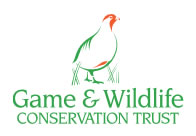 The RSPB is delighted to support the Big Farmland Bird Count, running from 7th to 15th February, which is a fantastic initiative to get farmers looking out for and enjoying the birdlife on their farm. If you struggle to tell your house sparrow from your tree sparrow, GWCT and RSPB have jointly produced an identification guide to help you put a name to the ‘little brown jobs’, which you can download here.
The RSPB is delighted to support the Big Farmland Bird Count, running from 7th to 15th February, which is a fantastic initiative to get farmers looking out for and enjoying the birdlife on their farm. If you struggle to tell your house sparrow from your tree sparrow, GWCT and RSPB have jointly produced an identification guide to help you put a name to the ‘little brown jobs’, which you can download here.For those of you who are more accomplished birdwatchers, it is an opportunity to take stock of what is using your farm and think about what measures you might use to support them through the winter, and the summer too, if they stay to breed.
It is fascinating to see with your own eyes what GWCT and RSPB researchers have proven over the years. For example, you are more likely to turn up a flock of finches or buntings, or a covey of grey partridges, if you walk around a wild bird seed mixture or overwintered stubble field, especially if this field did not receive a pre-harvest glyphosate application. If you come across a large flock of birds at this time of year, it proves you are doing something right. Can you work out what they are feeding on? Exploring how farmland birds are using your farm through the winter is useful to understand how you might help them, and is also quite fun.
You might find a true wildlife spectacle, as birds flock together in hundreds at this time of year wherever there is an abundant source of seed food. The sight of several thousand birds, including 700 corn buntings (3% of the British population) taking off from a 10ha stubble field in Bedfordshire will live with me forever. Hope you have a great day!
Download your FREE Farmland Bird ID Guide
Our FREE colour ID guide contains images and descriptions of the following birds:
- Grey partridge
- Red-legged partridge
- Starling
- Yellowhammer
- Skylark
- Meadow pipit
- House sparrow
- Tree sparrow
- Linnet
- Reed bunting
 GWCT Big Farmland Bird Count
GWCT Big Farmland Bird Count
No comments:
Post a Comment